#members of the Permanent Synod
Explore tagged Tumblr posts
Text
0 notes
Text
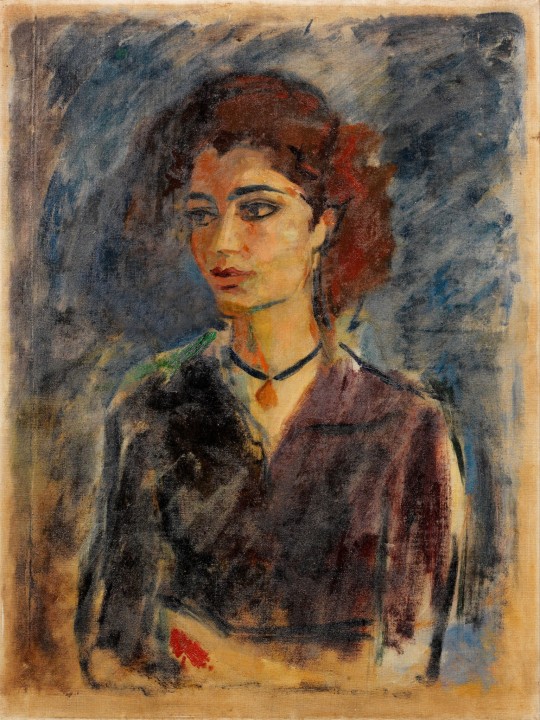
Lamia Abbas Amara (Arabic: لميعة عباس عمارة; Classical Mandaic: ࡋࡀࡌࡉࡀ ࡀࡁࡀࡎ ࡀࡌࡀࡓࡀ), also sometimes spelled Lamea Abbas Amara; 1929 – 18 June 2021) was an Iraqi poet. She was a pioneer of modern Arabic poetry and an important figure in contemporary poetry in Iraq.
Early life and education
She was born to a Mandaean family in Baghdad in 1929, and later grew up in Amarah.[2] Her father was Bayan bar Manu,[3] while her paternal grandfather was Sheikh Amara, who worked for the British during World War II.[1] Her uncle Zahroun Amara (died 1929) was a famous silversmith,[4] while her cousin Abdul Razzak Abdul Wahid (1930–2015) was also a poet.[3]
Her mother, the sister of Rabbi Dakhil Aidan, belonged to the Manduia priestly lineage.[1]
She studied at the Teachers' Training College, which later became part of the Baghdad University, and graduated in 1950.
Career
She was a member of the administrative board of the Iraqi Writers Union in Baghdad between 1963 and 1975, a member of the administrative board of the Syriac Synod in Baghdad, and deputy permanent representative of Iraq to UNESCO in Paris between 1973 and 1975, and director of culture and arts at the University of Technology in Baghdad.[3]
She left Iraq in 1978 and lived most of her exile in San Diego, United States after emigrating during the time of Saddam Hussein. Her sister, Shafia Abbas Amara, also emigrated to San Diego.[1]
Lamia Abbas specialized in Arabic eloquent and popular Iraqi poetry. She was awarded the National Order of the Cedar by the Lebanese state for her work.[5][a]
Together with her sister Shafia Abbas Amara, she published a magazine called Mandaee in the United States, which was mostly in Arabic but also partially in English.[6]
Lamia Abbas owned several Mandaean manuscripts that were given to her by her maternal uncle, Dakhil Aidan. These manuscripts, including the Ginza Rabba (two copies dating to 1886 and 1935), Mandaean Book of John (from 1922), and Book of the Zodiac (from 1919), were studied by Jorunn Jacobsen Buckley.[1]: 340 Buckley and Abbas were also lifelong friends.[6] She kept the manuscripts inside white cotton cloth bags containing musk grains, considered to be the scent of Life by Mandaeans.[1]: 61
Abbas died in the United States on 18 June 2021, aged 92.[5]
Family
Lamia's sons are Zakia and Zaidoun.[7]: 34
Notes
She did not receive the award personally, due to the Lebanese Civil War.
References
Buckley, Jorunn Jacobsen (2010). The great stem of souls: reconstructing Mandaean history. Piscataway, N.J: Gorgias Press. ISBN 978-1-59333-621-9.
"كتبت عن مشاعر المرأة بجرأة.. الموت يغيب أيقونة الشعر العراقي لميعة عباس عمارة". aljazeera.net (in Arabic). 18 June 2021.
"مقابلة مع الشاعرة العراقية لميعة عباس عمارة". jadaliyya.com (in Arabic). 17 October 2015.
"وفاة الشاعرة العراقية لميعة عباس عمارة عن عمر ناهز 92 عاماً". alwatannews.net (in Arabic). 18 June 2021.
"الموت يُغيّب الشاعرة العراقية لميعة عباس عمارة". Archived from the original on 2021-06-20. Retrieved 2021-06-19.
Buckley, Jorunn Jacobsen (2002). The Mandaeans: ancient texts and modern people. New York: Oxford University Press. ISBN 0-19-515385-5. OCLC 65198443.
Buckley, Jorunn Jacobsen (2023). 1800 Years of Encounters with Mandaeans. Gorgias Mandaean Studies. Vol. 5. Piscataway, NJ: Gorgias Press. ISBN 978-1-4632-4132-2. ISSN 1935-441X.
* Lamia Abbas Amara was cousin to the well-known Iraqi poet Abdul Razak Abdul Wahed — and she started writing poetry while a young teen. She graduated from Baghdad’s Higher Teacher’s College in 1950 and, for many years, taught Arabic.
Her three most widely read poetry collections are: The Empty Corner, I Am Iraqi, and Had the Fortune-teller Told Me.
She has written both formal and free verse, and she’s said that that, while formal verse is the way to communicate with others, she prefers writing free verse, which she felt brought her closer to her audience. Many of her poems were made into songs.
In the mid-twentieth century, she was one of the poets who gathered at the home of Iraqi writer Hayat Sharara, along with Badr Shakir al-Sayyab, Muhammad Mahdi al-Jawahiri, and Nazik al-Mala’ika, among others. She was a particular friend of the Sharara family.
In the introduction to Hayat Sharara’s When Darkness Falls, her sister Balkis Sharara writes of these meetings, and the poets’ relationships with each other:
His [Badr Shakri al-Sayyab’s] love for Lamia Abbas Amara wasn’t a secret, and it was clear in the poems that he recited in the meetings. Amara knew about his feelings for her, and she would look at him with her beautiful eyes, which hid their endless meanings. Lamia Abbas Amara was beautiful, tall, slim, with large black eyes and dark black hair, and she mostly wore black dresses. Amara was confident and had a sense of humor. Her personality, her way of using body language, and the way her voice rose and fell as she recited poetry created a magic atmosphere that took over the audience. Her poems were short, sensitive, and their main subject was love.
Lamia Abbas Sharara was a member of the Board of Directors of the Iraqi Writers Association between 1963 and 75, and deputy to the Iraqi representative for UNESCO in Paris from 1973-75.
In a 2008 interview, Emirati writer Salha Obaid Ghabesh talked about why she loved the Iraqi poet’s work:
I love her poems very much, particularly the one which is written in the form of a dialogue between [the poet] and a fortune-teller as to whether he had foreseen that she would lose the one she loved. Later in the poem, she blames the fortune-teller for not warning her earlier so that she could have avoided the misery she has gone through. The text is full of mystery, suspense and imagination.’
2 notes
·
View notes
Text

THE DESCRIPTION OF POPE SAINT PAUL VI The Pilgrim Pope Feast Day: May 29
"For man cannot attain that true happiness for which he yearns with all the strength of his spirit, unless he keeps the laws which the Most High God has engraved in his very nature." -excerpt from 'Humanae Vitae', July 25, 1968
Born near Brescia in northern Italy, Giovanni Battista Montini was the second of three sons. His father, Giorgio, was a lawyer, editor, and eventually a member of the Italian Chamber of Deputies. His mother, Giuditta, was very involved in Catholic Action.
After ordination in 1920, Giovanni did graduate studies in literature, philosophy, and canon law in Rome before he joined the Vatican Secretariat of State in 1924, where he worked for 30 years.
He was also chaplain to the Federation of Italian Catholic University Students, where he met and became a very good friend of Aldo Moro, who eventually became prime minister. Moro was kidnapped by the Red Brigade in March 1978, and murdered two months later. A devastated Pope Paul VI presided at his funeral.
In 1954, Fr. Montini was named archbishop of Milan, where he sought to win disaffected workers back to the Catholic Church. He called himself the 'archbishop of the workers' and visited factories regularly while overseeing the rebuilding of a local Church tremendously disrupted by World War II.
In 1958, Montini was the first of 23 cardinals named by Pope John XXIII, two months after the latter’s election as pope. Cardinal Montini helped in preparing Vatican II and participated enthusiastically in its first sessions. When he was elected pope in June 1963, he immediately decided to continue that Council, which had another three sessions before its conclusion on December 8, 1965.
The day before Vatican II concluded, Paul VI and Patriarch Athenagoras revoked the excommunications that their predecessors had made in 1054. The pope worked very hard to ensure that bishops would approve the Council’s 16 documents by overwhelming majorities.
Paul VI had stunned the world by visiting the Holy Land in January 1964, and meeting Athenagoras, the Ecumenical Patriarch of Constantinople in person. The pope made eight more international trips, including one in 1965, to visit New York City and speak on behalf of peace before the United Nations General Assembly. He also visited India (1964), Colombia (1968), Uganda (1969), and seven Asian countries during a 10-day tour in 1970.
Also in 1965, he instituted the World Synod of Bishops, and the next year decreed that bishops must offer their resignations on reaching age 75. In 1970, he decided that cardinals over 80 would no longer vote in papal conclaves or head the Holy See's major offices. He had increased the number of cardinals significantly, giving many countries their first cardinal.
Eventually establishing diplomatic relations between the Holy See and 40 countries, he also instituted a permanent observer mission at the United Nations in 1964. Paul VI wrote seven encyclicals; his last one in 1968 on human life - Humanae Vitae - prohibited artificial birth control.
Pope Paul VI died at Castel Gandolfo on August 6, 1978, and was buried in St. Peter's Basilica. He was beatified on October 19, 2014, and canonized on October 14, 2018.
Pope Saint Paul's greatest accomplishment was the completion and implementation of Vatican II. Its decisions about liturgy were the first ones noticed by most Catholics, but its other documents—especially the ones about ecumenism, interfaith relations, divine revelation, religious liberty, the Church's self-understanding and the Church's work with the entire human family—have become the Catholic Church’s road map since 1965.
Source: Franciscan Media
2 notes
·
View notes
Photo
A MESSAGE FROM THE OTHER SIDE OF THE GALAXY - TANK-BRED SCIENTIST/TERRAFORMING EXPERT EMAILING HER SOLDIER HUSBAND AFTER HAVING ANOTHER ROUGH DAY AT WORK
To my dearest husband Jared, may you be forever safe in these trying times...
Damn it, that was twice already, honey!
Twice my team and I nearly got into a crossfire between The Pax Cabalis (The Galactic Synod's elite military group) and those loony tech cultists! We were well on our way to terraform our fifth planet of the day when our scanner indicated the presence of an unregistered settlement on our next one, and before we know it several dozen attack cruisers began converging on our position, chanting strange gibberish over and over on all frequencies while jamming all our guidance and navigation systems! My Pibian coworker Fletustra suddenly starting having flashbacks and, it took nearly all of us plus some of the ship's crew members moments later to stop him from taking up his guns, going out and shooting them all down in zero gravity!
But yeah, I'm alright now, honey!
It's just that, all those helplessly possessed, hive-minded, glowing eyed individuals used to be someone else's parents, siblings, loved ones and...watching as they remorselessly went down in flames once those soldiers intercepted them--damn it The Faceless Horde's nefariousness knew no bounds, Jared! And it doesn't help that The Watchers had stolen from us the key to something that would invariably save us all from The Endtime while acting so nonchalant about it! (Yeah I'm still being mad about it, Jared! And they don't ever mess around with this angry tank-bred scientist while knowing very well all ten levels of hell will soon bear down upon them if they don't stop doing it!)
Anyway, how's everything over there, sweet honeybunch?
I've heard The Galactic Tribunal's been giving your squad leader Jensen and the entire Team 096 a hard time, even trying as far as to discredit the late Stanley Chan's heroic sacrifice? (His lobbing a biological grenade filled with Ofla Fever virus onto Shaik The Fallen One's face permanently ended The Dark Legion's menace two years ago) Ha! How I'd kill to see the looks on those alien lawyers' faces when the entire courtroom blew up that day, screaming and shouting anti government profanities in every known languages at them for daring to insult Milky Way's Undisputed Hero, heheh!
Jared, I've had that awfully strange dream again last night.
I saw our unborn twins...already grown up...fighting mysterious aliens...in some strange dimensions...using not conventional weapons but whatever it was that came out of their mind! Honey, you know I'm not superstitious but, I read it somewhere that recurring dreams can sometimes be a portent or a warning of some kind! If that's true then what are they warning us about, Jared? Is there going to be another calamity in the future or something? And to think it's not that long ago when us tank-breds weren't supposed to be able to conceive at all but now?
So what the heck is going on around here, Jared? I'm literally fresh out of logical explanations already!
Why can't these damned higher powers they'd just leave us alone already, huh?! It's bad enough that despite our best efforts we can't possibly hoped to terraform every civilized planet (no matter how optimistic we can be), and all the while having to contend with fending off space criminals of every kind; desperate, starving refugees trying to hijack our ship and demented, machine worshipping, red eyed individuals lurking in every corner of the galaxy every other day?!
But hey, I'm sorry if I might accidentally made you worried about me again with my rantings my sweet, Dixie Honey Pie, heheh!
It's just that, these are the days when we all are desperately in need of a hug, a friendly ear and a shoulder to cry on; when news of entire civilizations took out their own lives still pops up frequently on the Interweb and the two Galactic Admins are struggling to survive another day--let alone thinking of reclaiming everything they've lost to the failed invasion three months ago!
But yeah, all is not lost it seems, heheh!
My Ob/Gy Doctor said our twins are currently doing pretty good and if all goes well they are due for delivery just a week before Christmas! Oh, Jared honey! I can hardly wait to finish my work so I can get back home ASAP! We're not only gonna get a mini Helen for Christmas but also a mini Jared as well! This will the best Christmas Day ever for the Wachowskies, I guarantee it!
Okay, Jared, honey! You better take care of yourself now, you hear?
I will always be thinking of you every day and night as you always did for me. These past few years may have been extremely tough for this clueless tank-bred scientist and her "Toothless" Space Dixie babe but, at least we still have each other to come home to at the end of the day...
And that's more than enough for me to be eternally thankful for, heheh!
Yours Forever, Helen Hanson-Wachowsky

nagafujiriku
#science fiction#fantasy#cyberpunk#short story#space opera#slice of life#original characters#original posting#looking for publisher
369 notes
·
View notes
Text

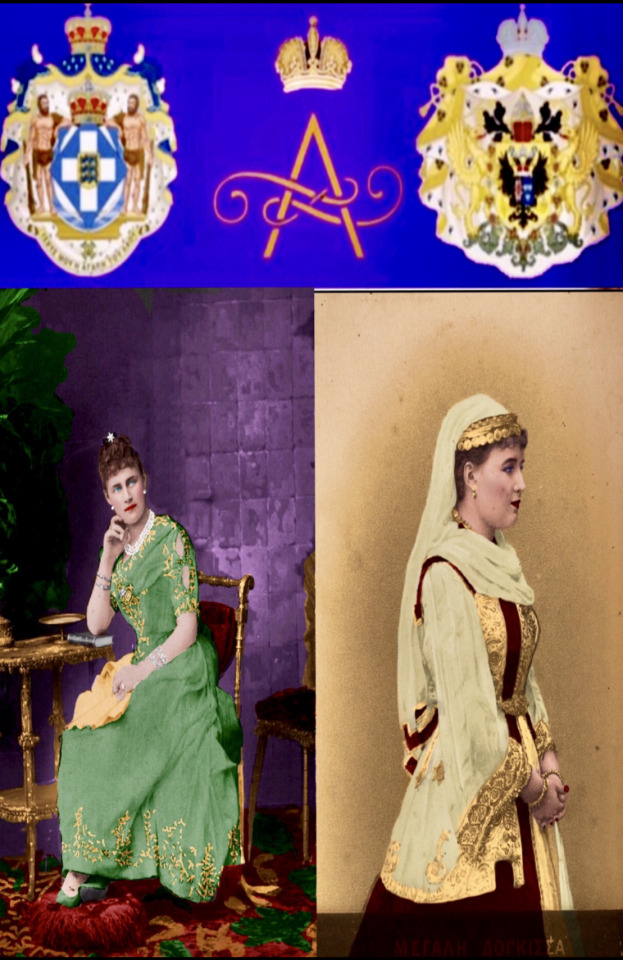



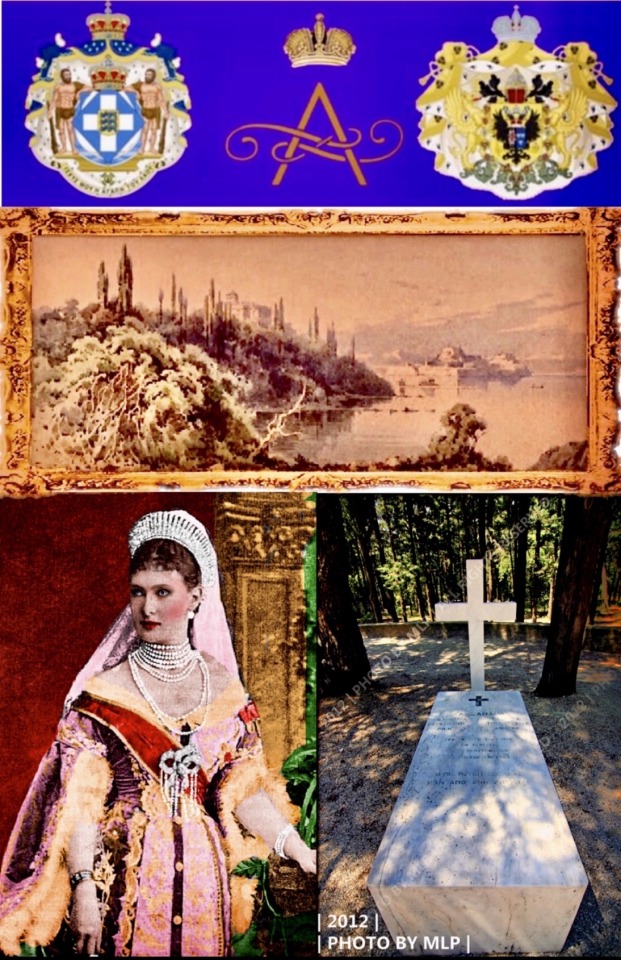
HRH Alexandra the sad princess of the Greek people and her tragic end in 24th of September 1891.
In Greece, the institution of the kingdom always provoked mixed feelings. However, there were cases of members of the royal family who were loved by the entire Greek people such as the eldest daughter and the third of the eight children of King George I and Queen Olga. Alexandra was born Princess of Greece, became Grand Duchess of Russia after marrying Grand Duke Pavlos Alexandrovich at the age of 19 and died two years later having
a daughter and a son
Her beauty, kindness and simplicity had made her dear to the Greeks since her childhood. She was born in the royal mansion Mon Repo of Corfu in August 1870. Growing up in Greece and adopting our customs and traditions, she became friends, usually girls descendants of fighters of the Greek Revolution and became the beloved daughter of Athens.
When the Grand Duke Pavlos came to Greece with his relatives to propose to Alexandra, there were unusual and unprecedented reactions, such as in May 1889, when Alexandra, accompanied by her family, left for St. Petersburg.
Parliament, city councils, trade unions and thousands of people accompanied the carriage that transported it to the Peloponnese Station.
The young Alexandra revealed her feelings to her close friend Irinoula Hadjipetrou, in a letter he sent her from the yacht three days after her departure from Athens: me when I saw the pain of the world for my escape.
The truth is that she lived unique and magnificent moments in Russia, especially at her weddings where all the guests were surprised when instead of jewelry, she simply placed myrtle in her blonde hair from the forests of Tatoi where she lived her beautiful childhood.
He was melancholy with the climate of Russia. He was accustomed to the sweet climate and the sun of Greece. Her mind was always on her homeland and in her room she had hung a painting by Mon Repo by the artist Angelos Giallinas.
(Picture in 5th collage)
In 1890 she will visit Greece to live unique and unrepeatable moments
But the thread of her life was soon cut short. Seven months into her second pregnancy, Alexandra took a walk with her friends on the bank of the Moskva River and jumped directly into a boat that was permanently moored there, but fell as she got in. The next day, she collapsed in the middle of a ball from violent labour pains. She gave birth to her son, Dimitri, lapsed into a fatal coma, and she died six days later in the Romanovs' estate Ilyinskoe near Moscow. The Grand Duchess was buried in the Peter and Paul Cathedral, St. Petersburg. Her grieving husband had to be restrained from throwing himself into the grave with her.
In 1939 when Alexandra's nephew George II of Greece was reigning, the Greek government obtained permission from the Soviet government under Joseph Stalin to rebury Princess Alexandra in Greece. Her body was removed from the vault in Leningrad and transferred by a Greek ship to Athens. It was finally laid to rest near the Tatoi Palace. Alexandra's marble tombstone over an empty tomb is still in its place in the Peter and Paul Cathedral.
Her death in Greece caused indescribable grief and sorrow.
In the towns and villages, in the main streets and squares, black cloths were hung, newspapers devoted their front pages for days, and for months hundreds of poems written about the Princess were published.
Her son, Grand Duke Demetrios, who assassinated the famous Rasputin in 1916, died two years later in the aftermath of the Bolshevik Revolution. Her husband, Grand Duke Petros, was executed four months after his son was convicted. The marriage of the daughter of the Grand Duchess Maria Pavlovna (the youngest) to the Prince of Sweden William was also annulled by a decision of the Russian Holy Synod.
However, there was also a great sense of Alexandra's loss in Russia, where her presence had taken on symbolic proportions. For the Russians, she was the Orthodox princess who married the Grand Duke after Sophia Paleologos, the wife of Ivan III Vasilievich, who reigned in the late 16th-early 17th century. It was considered to have contributed to the abolition of the feudal system and the yoke of the Tatars. It was also popularized by its initiatives to build three Metropolitan Churches in the Kremlin and the famous Granovitaya Palace, which served as a museum and treasury. For the Russian popular strata, Alexandra represented the "bridge" between the Orthodox peoples of Russia and Greece and the self-evident political dimensions of this relationship.
The Municipal Council of the Municipality of Athens decided to rename Stadiou Street to Alexandras Street. With his later decisions, he decided to name Alexandras Avenue the road that connects the city center with Ampelokipi. The Municipality of Piraeus gave its name to a square, while the "Alexandra Bridge" was named the surviving bridge in Thissio.
On the initiative of the rector of the University of Athens Pavlos Ioannou, the metropolitan of Athens Germanos and the mayor of Athens Michael Mela, it was decided to build a hospital in her memory. This decision was implemented sixty-three years later, in 1954, when the "Alexandra Maternity Hospital" was inaugurated, which was completed with funds from the "Marshall Plan". The official name was given by Decree a year later.
Η ΑΒΥ Αλέξανδρα ηθλιμμένη πριγκίπισσα του Ελληνικού Λαού και το τραγικό τέλος της στις 24 Σεπτεμβρίου, 1891
Στην Ελλάδα ο θεσμός της βασιλείας προκαλούσε πάντα ανάμικτα συναισθήματα Υπήρξαν ωστόσο περιπτώσεις μελών της βασιλικής οικογένειας που αγαπήθηκαν από το σύνολο του ελληνικού λαού οπως η μεγαλύτερη κόρη και το τρίτο από τα οκτώ παιδιά του βασιλιά Γεωργίου Α’ και της βασίλισσας Όλγας. Η Αλεξάνδρα γεννήθηκε ως Πριγκίπισσα της Ελλάδας, έγινε Μεγ��λη Δούκισσα της Ρωσίας αφού παντρεύτηκε σε ηλικία 19 ετών τον Μέγαλο Δούκα Παύλο Αλεξάντροβιτς και πέθανε δύο χρόνια αργότερα έχοντας αποκτήσει
μια κόρη και ένα γιο
Η ομορφιά της, η αγαθότητα και η απλότητά της την είχαν κάνει αγαπητή στους Έλληνες από την παιδική της ηλικία. Γεννήθηκε στη βασιλική έπαυλη Μον Ρεπό της Κέρκυρας τον Αύγουστο 1870. Μεγαλώνοντας στην Ελλάδα και υιοθετώντας τα ήθη και τις παραδόσεις μας, απέκτησε παρέες, συνήθως κορίτσια απογόνων αγωνιστών της Ελληνικής Επανάστασης και έγινε η πολυαγαπημένη κόρη των Αθηνών
Όταν ήρθε στην Ελλάδα ο Μέγαλος Δούκας Παύλος με συγγενείς του για να ζητήσουν σε γάμο την Αλεξάνδρα σημειώθηκαν ασυνήθιστες και πρωτοφανείς αντιδράσεις οπως τον Μάϊο 1889 όταν η Αλεξάνδρα, συνοδευόμενη από τους δικούς της, έφευγε για την Πετρούπολη.
Βουλή, δημοτικά συμβούλια, εργατικά σωματεία και χιλιάδες κόσμο�� συνόδευαν την άμαξα που τη μετέφερε στο Σταθμό Πελοποννήσου.
Η νεαρή Αλεξάνδρα αποκάλυψε τα αισθήματά της στη στενή της φίλη Ειρηνούλα Χατζηπέτρου, σε ενα γράμμα που της έστειλε από την θαλαμηγό τρεις ημέρες μετά την αναχώρησή της από την Αθήνα: «Δεν μπορεις να φαντασθεις τι στιγμες στεναχώριας πέρασα ηταν σαν να μου έσχιζαν μέρος από την καρδιά μου όταν έβλεπα την οδύνη του κόσμου για την φυγή μου.
Η αλήθεια είναι πως έζησε μοναδικές και μεγαλειώδεις στιγμές και στη Ρωσία, ιδιαίτερα στους γάμους της όπου όλοι οι καλεσμένοι έμειναν έκπληκτοι όταν αντί για κοσμήματα, τοποθέτησε απλά στα ξανθά μαλλιά της μύρτα από την απο τα δάση του Τατοΐου όπου έζησε τα όμορφα παιδικά της χρόνια.
Μελαγχολούσε με το κλίμα της Ρωσίας. Είχε συνηθίσει στο γλυκό κλίμα και τον ήλιο της Ελλάδας. Το μυαλό της ηταν πάντα στην πατρίδα της και στο δωμάτιο της είχε κρεμάσει πίνακα του Μον Ρεπό έργο του καλλιτέχνη Άγγελου Γιαλλινά.
(Φωτογραφία στο 5ο κολάζ)
Το 1890 θα επισκεφτεί την Ελλάδα για να ζήσει μοναδικές και ανεπανάληπτες στιγμές
Αλλά το νήμα της ζωής της κόπηκε σύντομα. Επτά μήνες στη δεύτερη εγκυμοσύνη της, η Αλεξάνδρα έκανε μια βόλτα με τους φίλους της στην όχθη του ποταμού Μόσκα και πήδηξε κατευθείαν σε μια βάρκα που ήταν μόνιμα αγκυροβολημένη εκεί, αλλά έπεσε καθώς μπήκε. Την επόμενη μέρα, κατέρρευσε στη μέση μια μπάλα από βίαιους πόνους τοκετού. Γέννησε τον γιο της, τον Δημήτρη, έπεσε σε θανατηφόρο κώμα και πέθανε έξι ημέρες αργότερα στο κτήμα των Ρομάνοφ Ιλίνσκοε κοντά στη Μόσχα. Η Μεγάλη Δούκισσα θάφτηκε στον καθεδρικό ναό Πέτρου και Παύλου, Αγία Πετρούπολη. Ο θλιμμένος σύζυγός της έπρεπε να συγκρατηθεί από το να ρίξει τον εαυτό του στον τάφο μαζί της.
Το 1939, όταν βασιλεύει ο ανιψιός της Αλεξάνδρας Γεώργιος Β Greece της Ελλάδας, η ελληνική κυβέρνηση έλαβε άδεια από τη σοβιετική κυβέρνηση υπό τον Ιωσήφ Στάλιν να ξαναθάψει την πριγκίπισσα Αλεξάνδρα στην Ελλάδα. Το σώμα της αφαιρέθηκε από το θησαυροφυλάκιο στο Λένινγκραντ και μεταφέρθηκε με ελληνικό πλοίο στην Αθήνα. Τελικά κηδεύτηκε κοντά στο παλάτι Τατόι. Η μαρμάρ��νη ταφόπλακα της Αλεξάνδρας πάνω από έναν άδειο τάφο βρίσκεται ακόμα στη θέση της στον καθεδρικό ναό Πέτρου και Παύλου.
Ο θάνατός της στην Ελλάδα προξένησε απερίγραπτη θλίψη, και στεναχώρια.
Στις πόλεις και τα χωριά, στους κεντρικούς δρόμους και τις πλατείες, κρεμάστηκαν μαύρα υφάσματα, οι εφημερίδες αφιέρωναν επί ημέρες τα πρωτοσέλιδά τους και επί μήνες δημοσιεύονταν εκατοντάδες ποιήματα που είχαν γραφτεί για την Πριγκίπισσα .
Ο γιός της, ο Μέγας Δούκας Δημήτριος, ο οποίος σκότωσε τον περίφημο Ρασπούτιν το 1916, έχασε τη ζωή του δύο χρόνια αργότερα στα γεγονότα που ακολούθησαν την επανάσταση των μπολσεβίκων. Ο σύζυγός της, Μέγας Δούκας Πέτρος, αφού καταδικάσθηκε εκτελέστηκε τέσσερις μήνες μετά το γιό του. Αλλά και ο γάμος της κόρης της Μεγάλης Δούκισσας Μαρια Παβλοβνα (η νεότερη )με τον Πριγκιπα της Σουηδίας Γουλιέλμο ακυρώθηκε με απόφαση της Ρωσικής Ιεράς Συνόδου .
Πάντως, μεγάλη ήταν και η αίσθηση της απώλειας της Αλεξάνδρας στην Ρωσία, όπου η παρουσία της είχε πάρει συμβολικές διαστάσεις. Για τους Ρώσους ήταν η ορθόδοξη πριγκίπισσα που παντρεύτηκε Μέγα Δούκα μετά τη Σοφία Παλαιολόγου, τη σύζυγο του Ιβαν Γ΄ Βασιλίεβιτς, που βασίλευσε τέλη 16ου-αρχές 17ου αιώνα. Θεωρείτο ότι συνέβαλε στην άρση του φεουδαλικού συστήματος και του ζυγού των τατάρων. Επίσης, δημοφιλή την είχαν καταστήσει οι πρωτοβουλίες της για ανέγερση τριών Μητροπολιτικών Ναών στο Κρεμλίνο και του περίφημου Ανακτόρου Γρανοβιτάϊα που χρησίμευε ως μουσείο και Θησαυροφυλάκιο. Για τα Ρωσικά λαϊκά στρώματα η Αλεξάνδρα εκπροσωπούσε τη «γέφυρα» μεταξύ των ορθόδοξων λαών της Ρωσίας και της Ελλάδος και τις αυτονόητες πολιτικές διαστάσεις της σχέσης αυτής.
Το Δημοτικό Συμβούλιο του Δήμου Αθηναίων αποφάσιζε να μετονομάσει την οδό Σταδίου σε οδό Αλεξάνδρας. Με μεταγενέστερες αποφάσεις του κατέληξε να ονομαστεί λεωφόρος Αλεξάνδρας ο δρόμος που συνδέει το κέντρο της πόλης με τους Αμπελόκηπους. Ο Δήμος Πειραιώς έδωσε το όνομά της σε μια πλατεία, ενώ «Γέφυρα Αλεξάνδρας» ονομάστηκε η σωζόμενη μέχρι σήμερα γέφυρα στο Θησείο.
Με πρωτοβουλία του πρύτανη του Πανεπιστημίου Αθηνών Παύλου Ιωάννου, του μητροπολίτη Αθηνών Γερμανού και του δημάρχου Αθηναίων Μιχαήλ Μελά αποφασίστηκε και η ανέγερση Νοσοκομείου στη μνήμ�� της. Η απόφαση αυτή υλοποιήθηκε εξήντα τρία χρόνια αργότερα, το 1954, όταν εγκαινιάστηκε το «Μαιευτήριον Αλεξάνδρα» που ολοκληρώθηκε με κονδύλια από το «Σχέδιο Μάρσαλ». Η επίσημη ονομασία δόθηκε με Διάταγμα ένα χρόνο αργότερα.
#kingconstantine#danishroyalfamily#crownprincepavlos#queenannemarie#greek royal family#house of romanov#crownprincessmariechantal#princess theodora#princessmarieolympia#princeachileasandreas#princeconstantinealexios#princenikolaos#princessnina#princesseirini#princesstatiana#princearistidesstavros#princefilippos#princeodisesskimon
2 notes
·
View notes
Text
Earth to Air #03
The most pertinent astrological event of our time is the once-every-two-centuries procession of the elements in the Jupiter-Saturn synodic cycle. In December 2020, we are moving from an earth age to an air age. I will be cataloguing reflections and predictions, as well as amplifications of the elements and their zodiacal signs.

Food is the Reward We say that Venus, ruler of taurus and libra, governs ethics and aesthetics. Ethics is the more immaterial, and best represented by libra, the air sign. Aesthetics is concrete, and best represented by taurus, the earth sign. Taurus is the sign of food, values, and art. We talk about tasting food and having taste in art. Taste in art is essentially a measure of appropriateness, and so are our values. “[Something], in what measure?” A tone of voice, a texture, a shape or color. Recall, taurus also rules money. Wealth in what measure? What results in pleasure.
What is this association between the material and value? Why does something hold more value if it is objective and physical?
Tina Fey once said something very wise: that the only real reward is food. When you are celebrating a success, the feeling is cemented by food. Regardless of scale. Finished fixing a pipe at home? Have a nice lunch. Successfully stage the opening night of your epic opera? Go out to dinner. The act of consumption is tied to the success of the deed, this is especially obvious on the occasion of a toast. Not only does the food tether the success around it, but it binds together the people who are sharing in it. We see that food is not only a consolidated symbol of value, but that it also concentrates the group into a set of values. Thus food is a bedrock of tribal life and tribalism. How offended is the tribe when you refuse to eat with them, or in their manner?
The word “binding” means three things: attaching, reinforcing and restricting. Tribal life is restricted by convention, but the affixing of concrete images and values to the symbolic order of the tribe fortifies its strength by providing it new organs, new capacities. In alchemical psychology, the stage of “coagulation” is all about the affixing of images, and closely relates to the process of personification. When a psychological complex is given an image—or better yet, personified—it is far easier to deal with. But the carrying around of an image that has been outgrown is, of course, restrictive. So images must not be permanent. Our bodies too are images, and they are beautiful and valuable because they die.
The attachment to our bodies is very important for life. If we did not care about our bodies and find them beautiful we would die much faster. “Let your wicked desires keep you pinned to this earth so your work could go on,” wrote Jung to his suicidal friend. Desire keeps us in life, and the desire of all the beings within us keep the body together. The countless microorganisms within do not have minds, but they have wants.
Dissolution Under Analysis Supposing that there is a mesh of matter underlying the various objects of the world. After all, bodies die and buildings fall to rubble and then to dust. So if we think about matter as a whole, without its temporary approximate forms, it certainly is a diffuse mesh, a matrix. Then the cohering of that mesh into one of these forms is a desire.
Consider also the process of logic, which must operate upon abstractions that have been crystallized into units. Set theory, for instance, deals with the abstraction of set, drawn into coherence by its categorization as a set. Each member of a set is also itself a set. It is sets all the way up and down. So it is the bundling of axioms, the coagulation of the set, that makes it all operable.
An Amp for Christ When Christ came to earth, he vitiated the magical projections of animism. The spirits of nature withdrew from the rocks and trees. This is the root of the opposition between Christianity and paganism. The keynote here is that Christ did this by taking these projections upon himself—he sheathed himself in the symbols of the world. This was an axial moment in the development of consciousness, where people realized they could find all the spirits of the world inside themselves. Here psyche could make an integral step in its pivot to self-reflection. We don’t know what the world appeared like preceding or directly after this event, but we might imagine that the world of matter suddenly appeared much more real and substantial.
And he said something about how he was the living bread, and from then on people have been eating his body in the form of the Eucharist. Is this part of his great deed, to make explicit the bundling of values that goes into a physical object? And that the consumption of the physical object brings with it an isomorphic psychological change?

We Want Stuff The Industrial Age, the age of earth, came after the Enlightenment, the age of fire. And it is clear how science and reason set the stage for all the marvelous technology of industry. The achievements of the Enlightenment were very exciting, but somewhat abstract, and so did not look like much. It is the movement from age to age, from principle to machine, that gave us something to look at.
Then with this new industrial speed, we had so much to look at. We have now a lot of stuff. Without effort, I can get a mug with anything I want on it and in it. So many, many objects.
As stated, matter is energy drawn into form by desire and objects are therefore crystalizations of desire. So we desire objects. And we want them because they radiate their energy, their love upon us. A statue painstakingly carved from marble can sit in one’s home for a very long time and continue to radiate, to unfold new dimensions. It took a lot of desire for it to get here. A mass-produced object, not so much.
Lacan’s objet petit a is the object of desire that is never attained, because once it is attained, the desire fades. But the more something is wanted, the longer it can radiate its magic upon us once we have it. Things that take longer or are harder to find are obviously going to stoke more desire, and radiate for longer once they are in our apartments.
Because goods are produced so fast, we have to compensate for this through artificial anticipation: a culture of drops. The new sneaker is about to come out, better cop at launch. A Funko Pop based on a guy I like will be released shortly—I had better be the first to click. The Funkos are terrific examples because of their monstrously dead eyes and immobile bodies, and their interchangeability implying disposability, though the character they represent is always predicated on some attachment. We loved him, once, didn’t we? When we saw him in the show, and he surprised and delighted us? If only I could have a reminder of that in my home. Yet once the package arrives we just set him onto the shelf and expect him to do all the work. We do not vivify these collectibles; the sneakers are too nice to wear out, so we put them on display. The Funkos often do not even escape their sad little boxes.
When a child plays with toys, they nurture the object so it can continue radiating itself upon them. The beloved toy is another being, an animate partner, and they continue to want it even though they have it, because the breath of life comes into it, and it continually creates new experiences. It is born anew through play. This resembles certain rituals of old, where the cosmic origin is recreated, and the human participants are born anew with the world. The creation of the world is constant, it is only whether we care to be involved again. Spirit is breathing its love into matter always, always.
#astrology#earth epoch#industrial age#mundane astrology#taurus#libra#venus#stuff#materialism#funko pops#garbage#objet petit a#play#toys#statues#earth age
28 notes
·
View notes
Text
Catechism of the Catholic Church
The episcopal college and its head, the Pope
880 When Christ instituted the Twelve, "he constituted [them] in the form of a college or permanent assembly, at the head of which he placed Peter, chosen from among them."398 Just as "by the Lord's institution, St. Peter and the rest of the apostles constitute a single apostolic college, so in like fashion the Roman Pontiff, Peter's successor, and the bishops, the successors of the apostles, are related with and united to one another."399
881 The Lord made Simon alone, whom he named Peter, the "rock" of his Church. He gave him the keys of his Church and instituted him shepherd of the whole flock.400 "The office of binding and loosing which was given to Peter was also assigned to the college of apostles united to its head."401 This pastoral office of Peter and the other apostles belongs to the Church's very foundation and is continued by the bishops under the primacy of the Pope.
882 The Pope, Bishop of Rome and Peter's successor, "is the perpetual and visible source and foundation of the unity both of the bishops and of the whole company of the faithful."402 "For the Roman Pontiff, by reason of his office as Vicar of Christ, and as pastor of the entire Church has full, supreme, and universal power over the whole Church, a power which he can always exercise unhindered."403
883 "The college or body of bishops has no authority unless united with the Roman Pontiff, Peter's successor, as its head." As such, this college has "supreme and full authority over the universal Church; but this power cannot be exercised without the agreement of the Roman Pontiff."404
884 "The college of bishops exercises power over the universal Church in a solemn manner in an ecumenical council."405 But "there never is an ecumenical council which is not confirmed or at least recognized as such by Peter's successor."406
885 "This college, in so far as it is composed of many members, is the expression of the variety and universality of the People of God; and of the unity of the flock of Christ, in so far as it is assembled under one head."407
886 "The individual bishops are the visible source and foundation of unity in their own particular Churches."408 As such, they "exercise their pastoral office over the portion of the People of God assigned to them,"409 assisted by priests and deacons. But, as a member of the episcopal college, each bishop shares in the concern for all the Churches.410 The bishops exercise this care first "by ruling well their own Churches as portions of the universal Church," and so contributing "to the welfare of the whole Mystical Body, which, from another point of view, is a corporate body of Churches."411 They extend it especially to the poor,412 to those persecuted for the faith, as well as to missionaries who are working throughout the world.
887 Neighboring particular Churches who share the same culture form ecclesiastical provinces or larger groupings called patriarchates or regions.413 The bishops of these groupings can meet in synods or provincial councils. "In a like fashion, the episcopal conferences at the present time are in a position to contribute in many and fruitful ways to the concrete realization of the collegiate spirit."414
2 notes
·
View notes
Text
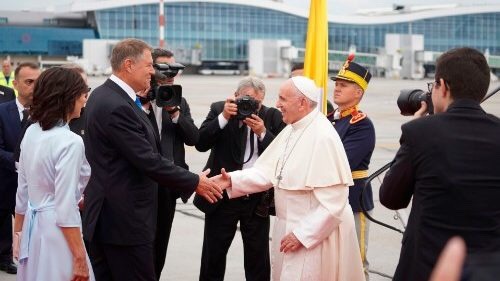
31st May >> (@VaticanNews By Devin Watkins) #Pope Francis #PopeFrancis is welcomed to Bucharest by President @KlausIohannis on Friday, at the start of his 3-day Apostolic Journey to #Romania.
Pope Francis welcomed to Bucharest for 3-day visit to Romania
As the papal plane touches down in Bucharest on Friday morning, Pope Francis is welcomed to Romania’s capital by President Klaus Iohannis and a delegation of Catholic and Orthodox leaders, at the start of his 3-day Apostolic Journey to the EU member state.
By Devin Watkins
Pope Francis’ visit to Romania is his 30th Apostolic Journey abroad, and takes place under the official motto “Let’s walk together”.
He follows in the footsteps of Pope St. John Paul II, who made the first papal visit to the Orthodox-majority nation 20 years ago in May 1999.
Friday in Bucharest
The Holy Father spends Friday in the capital, Bucharest. His first engagement is with Romania’s civil authorities at the Presidential Palace. He also encounters the permanent Synod of the Romanian Orthodox Church, and prays the Our Father with them at the new Orthodox Cathedral.
The Pope finishes the day by celebrating Mass for the city’s Catholics at Saint Joseph Cathedral.
Saturday in Transylvania region
On Saturday, Pope Francis flies to the northeastern city of Bacău, where he will take a helicopter to Miercurea Ciuc, in the Transylvania region, to celebrate Mass at the Marian Shrine of Şumuleu Ciuc.
He also travels to Romania’s second largest city, Iași. There he will make a private visit to Our Lady Queen of Iași Cathedral, and hold a Marian encounter with young people and families.
Sunday in Blaj
On the last day of his visit, Pope Francis visits the central city of Blaj.
In the morning he will celebrate the Divine Liturgy and beatify 7 Greek Catholic bishops who were martyred under the communist regime.
The last event on the Pope’s schedule is an encounter with the Roma community in the Barbu Lautaru neighborhood of Blaj.
Pope Francis departs Sunday afternoon from Sibiu’s airport, and returns to the Vatican in the early evening.
Topics
POPE FRANCIS
ROMANIA
APOSTOLIC VISIT
31st May 2019, 10:28
1 note
·
View note
Text
German synodal way members back permanent ‘synodal council’
German synodal way members back permanent ‘synodal council’
The German “Synodal Way” has adopted a controversial proposal to create a permanent body composed of lay people and bishops to oversee the local Church. The country’s bishops initiated the “Der Synodale Weg” in 2019 in the wake of a damning report that showed the vast extent of the clergy sex abuse crisis. The aim of the Synodal Way has been to restore trust among the Catholic people in…

View On WordPress
0 notes
Text
Veteran Board Member Mr. John Van Voorhis Granted Emeritus Status, Endowed Scholarship Established
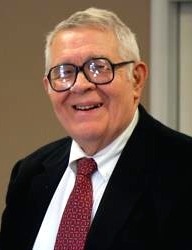
After 24 years of service as an active Board member, Ruling Elder Mr. John Van Voorhis has graciously joined Dr. George W. Knight III and Pastor Randy Riddle as an Emeritus Trustee. Mr. Van Voorhis has been one of the Seminary’s strongest proponents for many years, serving on the Board since 1994 in several capacities. He has served as both Chairman and Vice Chairman of the Board for over two decades. He has also consistently and sacrificially served on the Administrative Committee of the Board, which is responsible for recommending strategy and personnel-related decisions to the Board as a whole.
Mr. Van Voorhis is the first graduate of Greenville Presbyterian Theological Seminary’s Master of Ministry for Ruling Elders (MMRE) program, and he currently serves on the Session of Covenant Community Orthodox Presbyterian Church in Taylors, SC. However, his history of Presbyterian churchmanship and involvement in Christian education goes back 57 years, to 1961.
In 1961, Mr. John Van Voorhis took vows and was ordained as a Ruling Elder in the Orthodox Presbyterian Church at Knox OPC, and immediately went to his first General Assembly. That year, Professor John Murray served as Moderator of the Assembly. Within ten years, Mr. and Mrs. Van Voorhis were involved as one of four founding families in the formation of Covenant Orthodox Presbyterian Church in Burtonsville, MD. He served as an elder in the Burtonsville congregation from 1968 to 1970, before moving first to Charlotte, NC, and then to Philadelphia, PA. In both Charlotte and Philadelphia, Mr. Van Voorhis served as a Ruling Elder in the Reformed Presbyterian Church, Evangelical Synod (RPC-ES). From 1970-1973, he served on the Session of Faith Church in Charlotte, and from 1973-1980, he served on the Session at Christ Church in Oreland (outside of Philadelphia).
During the Van Voorhis’s time in Philadelphia, Mr. Van Voorhis served as Vice Moderator of the Philadelphia Presbytery for two years, Moderator for two years, Chairman of the Permanent Judicial Commission, active member of the Board of National Presbyterian Missions, and member of several synodical committees. He also served as Vice Chairman of the Board of Philadelphia-Montgomery (Phil-Mont) Christian Academy in suburban Philadelphia, and as a member of the Board for The Presbyterian Guardian.
From 1983 to 2005, Mr. Van Voorhis served as a Ruling Elder at the Second Presbyterian Church (PCA) of Greenville, SC. In that time, he served twice as Moderator of Calvary Presbytery and from 1996 to 2000 as an active member of the Standing Judicial Commission of the Presbyterian Church in America’s General Assembly.
In 2006, Mr. and Mrs. Van Voorhis were involved as one of the founding families of Covenant Community Orthodox Presbyterian Church in Taylors, SC, where he currently serves as a Ruling Elder. Reflecting on his vast and varied experienced as a Presbyterian churchman, Mr. Van Voorhis testifies, “I have found, to no one’s surprise, that no denomination is perfect, but it has been a great joy to serve in Christ’s Kingdom for 57 years as an elder, and for 25 years on the Board of Greenville Presbyterian Theological Seminary.”
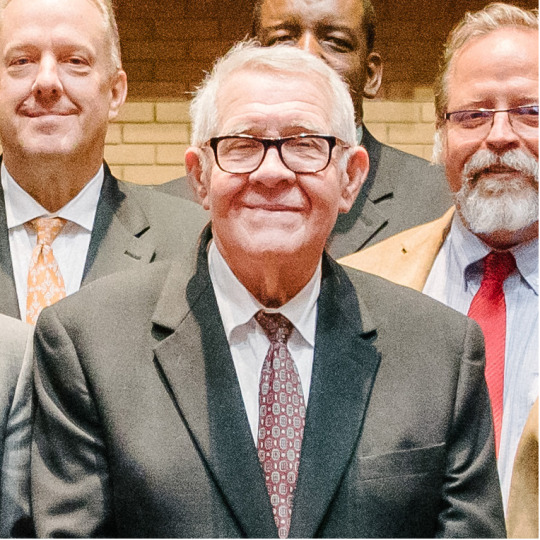
When asked for a statement of reflection on his time of service to the Seminary, Mr. Van Voorhis warmly recalled,
“It has been a tremendous blessing and encouragement to me to sit under the instruction of Dr. Morton Smith and other good men, and then to become a part of a Board which has been fully committed to the Reformed faith since Greenville Presbyterian Theological Seminary had its onset. As I leave my active participation on the Board, I am greatly encouraged by the godliness and quality of my fellow Board members, in whose hands I feel confident of God’s continued blessing in future years.”
In honor of Mr. Van Voorhis’s many years of service to the Seminary, the Board of Trustees voted to establish the John & Mildred Van Voorhis Endowed Scholarship to fund one full-tuition scholarship ($7,000) per year. Details about the endowment and scholarship are forthcoming, and additional announcements will be made in coming weeks. Ω
5 notes
·
View notes
Text
Tuesday, January 12, 2021
Records show fervent Trump fans fueled US Capitol takeover (AP) The mob that showed up at the president’s behest and stormed the U.S. Capitol was overwhelmingly made up of longtime Trump supporters, including Republican Party officials, GOP political donors, far-right militants, white supremacists, members of the military and adherents of QAnon. The Associated Press reviewed social media posts, voter registrations, court files and other public records for more than 120 people either facing criminal charges related to the Jan. 6 unrest or who, going maskless amid the pandemic, were later identified through photographs and videos taken during the melee. The evidence gives lie to claims by right-wing pundits that the violence was perpetrated by left-wing antifa thugs rather than supporters of the president. Steven D’Antuono, the assistant director in charge of the FBI’s Washington field office, told reporters that investigators had seen “no indication” antifa activists were disguised as Trump supporters in Wednesday’s riot. The AP found that many of the rioters had taken to social media after the November election to retweet claims by Trump that the vote had been stolen.
Parler, Free Speech, and bans (NYT) From the start, John Matze had positioned Parler as a “free speech” social network where people could mostly say whatever they wanted. It was a bet that had recently paid off big as millions of President Trump’s supporters, fed up with what they deemed censorship on Facebook and Twitter, flocked to Parler instead. On the app, which had become a top download on Apple’s App Store, discussions over politics had ramped up. But so had discussions that the election had been stolen from Mr. Trump, with users urging aggressive demonstrations last week when Congress met to certify the election of President-elect Joseph R. Biden Jr. By Saturday night, Apple and Google had removed Parler from their app stores and Amazon said it would no longer host the site on its computing services, saying it had not sufficiently policed posts that incited violence and crime. Early on Monday morning, just after midnight on the West Coast, Parler appeared to have gone offline. Parler’s plight immediately drew condemnation from those on the right, who compared the big tech companies to authoritarian overlords. Parler has now become a test case in a renewed national debate over free speech on the internet and whether tech giants such as Facebook, Google, Apple and Amazon have too much power. (Worldcrunch) The moves by the tech giants didn’t sit well with many, including critics of the president. “We understand the desire to permanently suspend [Trump] now,” Kate Ruane, a lawyer for the American Civil Liberties Union, wrote in a statement on Friday. “But it should concern everyone when companies like Facebook and Twitter wield the unchecked power to remove people from platforms that have become indispensable for the speech of billions—especially when political realities make those decisions easier.” French Economy Minister Bruno Le Maire went further, telling France Inter radio this morning that he was “shocked” that the social networks could take such action: “The regulation of the digital [space] can’t be carried out by the digital oligarchy itself. The digital oligarchy is one of the threats that weighs on our nations and our democracies.”
Presidential Disqualification (NYT) If the House impeaches President Trump this week, it will still have almost no effect on how long he remains in office. His term expires nine days from now, and even the most rapid conceivable Senate trial would cover much of that time. But the impeachment debate is still highly consequential. The Senate has the power both to remove Trump from office and to prevent him from holding office in the future. That second power will not expire when his term ends, many constitutional scholars say. A Senate trial can happen after Jan. 20. And disqualifying Trump from holding office again could alter the future of American politics. There is a significant chance he could win the presidency again, in 2024. He remains popular with many Republican voters, and the Electoral College currently gives a big advantage to Republicans. If he is not disqualified from future office, Trump could dominate the Republican Party and shape American politics for the next four years.
As spending climbs and revenue falls, the coronavirus forces a global reckoning (Washington Post) Costa Rica built Latin America’s model society, enacting universal health care and spending its way to one of the Western Hemisphere’s highest literacy rates. Now, it’s reeling from the financially crushing side effects of the coronavirus, as cratering revenue and crisis spending force a reckoning over a massive pile of government debt. The pandemic is hurtling heavily leveraged nations into an economic danger zone, threatening to bankrupt the worst-affected. Costa Rica, a country known for zip-lining tourists and American retirees, is scrambling to stave off a full-blown debt crisis, imposing emergency cuts and proposing harsher measures that touched off rare violent protests last fall. Around the globe, the pandemic is racking up a mind-blowing bill: trillions of dollars in lost tax revenue, ramped-up spending and new borrowing set to burden the next generation with record levels of debt. In the direst cases—low- and middle-income countries, mostly in Africa and Latin America, that are already saddled with backbreaking debt—covering the rising costs is transforming into a high-stakes test of national solvency. Analysts call it a “debt tsunami”: National accounts are sinking into the red at a record pace. “I consider the risk to be very high of an emerging-market debt crisis where a lot of countries run into problems at once,” said Harvard economist Kenneth Rogoff, former chief economist at the International Monetary Fund. “This is going to be a rocky road.”
Schools shut as Madrid clears record snow (AP) Schools in Madrid were closed on Monday while most trains and flights resumed as the Spanish capital tried to return to some form of normalcy after a huge snow storm on the weekend. While many in Madrid enjoyed the rare snow fall, skiing right at the heart of the city and holding mass snowball fights, a cold spell was set to turn the snow into slippery ice this week, and authorities rushed to clear more streets. With most streets still covered in snow, many workers stayed home. A Reuters reporter saw a number of empty shelves at several central Madrid supermarkets.
Pope, in new decree, allows more roles for women in Church (Reuters) Pope Francis, in another step towards greater equality for women in the Roman Catholic Church, on Monday changed its law to allow them to serve as readers at liturgies, altar servers and distributors of communion. In a decree, the pope formalised what already has been happening in many countries for years. But with the change in the Code of Canon Law, conservative bishops will not be able to block women in their diocese from those roles. But the Vatican stressed that the roles were “essentially distinct from the ordained ministry”, and were not an automatic precursor to women one day being allowed to be ordained priests. In a big shift last August the pope appointed six women, including the former treasurer for Britain’s Prince Charles, to senior roles in the council that oversees Vatican finances. Francis has already appointed women as deputy foreign minister, director of the Vatican Museums, and deputy head of the Vatican Press Office, as well as four women as councillors to the Synod of Bishops, which prepares major meetings.
Populist, Prisoner, President: A Convicted Kidnapper Wins Kyrgyzstan Election (NYT) A populist politician and convicted kidnapper won a landslide victory on Sunday in a snap presidential election in Kyrgyzstan triggered by a popular uprising against the previous government. Sadyr Japarov, the winning candidate, got nearly 80 percent of the vote, according to the central electoral commission of the mountainous country, the only democracy in Central Asia. More than 80 percent of voters also supported Mr. Japarov’s proposal to redistribute political power away from Parliament and into the president’s hands. In September, Mr. Japarov, 52, was still in jail, serving a lengthy term for orchestrating the kidnapping of a provincial governor, a charge he denounced as politically motivated. A violent upheaval that erupted in October over a disputed parliamentary election sprung Mr. Japarov from a prison cell to the prime minister’s chair. A few days later, he assumed the interim presidency before resigning to run for that office. The country’s main investigative body quickly canceled Mr. Japarov’s conviction. A landlocked former Soviet republic of 6.3 million people, Kyrgyzstan has suffered recurrent political strife. Three of its presidents, including Mr. Japarov’s immediate predecessor Sooronbay Jeenbekov, have been toppled in violent revolts since the country’s independence from Moscow in 1991.
A Year After Wuhan, China Tells a Tale of Triumph (and No Mistakes) (NYT) At a museum in Wuhan, China, a sprawling exhibition paints a stirring tale of how the city’s sacrifices in a brutal 76-day lockdown led to triumph over the coronavirus and, ultimately, rebirth. No costs appear to have been spared for the show, which features a hologram of medical staff members moving around a hospital room, heart-rending letters from frontline health workers and a replica of a mass quarantine site, complete with beds, miniature Chinese flags and toothbrush cups. But the exhibition is also striking for what is not included. There is no mention of the whistle-blowing role of Ai Fen, one of the first doctors to sound the alarm in Wuhan, where the virus is believed to have originated, or the decision by Zhang Yongzhen, a Shanghai doctor, to share its genome with the world against official orders. Visitors are invited to lay a virtual chrysanthemum at a wall of martyrs that includes Li Wenliang, the ophthalmologist at a Wuhan hospital whose death from the virus led to nationwide mourning. But missing from his brief biography is a crucial fact: that Dr. Li was reprimanded by the government for warning colleagues about the virus from which he later died. China has spent much of the past year trying to spin the narrative of the pandemic as an undisputed victory led by the ruling Communist Party. The state-run news media has largely ignored the government’s missteps and portrayed China’s response as proof of the superiority of its authoritarian system, especially compared to that of the United States and other democracies, which are still struggling to contain raging outbreaks. Those efforts have taken on new urgency as the Jan. 23 anniversary of Wuhan’s lockdown draws closer. In recent weeks, the government has deployed an army of censors to scrub the internet of critical coverage of the Wuhan outbreak.
Daily Low Flying Israeli Jets Over Lebanon Spreading Jitters (AP) Israeli military jets carried out several low flying flights over Beirut as reconnaissance drones also buzzed overhead Sunday in what has become a daily occurrence. Israel regularly violates Lebanon airspace, often to carry out strikes in neighboring Syria. On Christmas Eve, Israeli jets flew low late into the night, terrorizing Beirut residents who are no strangers to such flights. They were followed by reported Israeli strikes in Syria. The frequency of low flying warplanes over the capital has intensified in the last two weeks, making residents jittery as tensions run high in the region on the final days of President Donald Trump’s administration. “Of all types of panic I experienced in life in Beirut, the panic that accompanies the Israeli warplanes flying this low in Beirut is very special,” Tweeted Rudeynah Baalbaky, who said it brought back memories of the 2006 war with Israel. “When the drone leaves, the warplanes come. When the warplanes leave, the drones return. They have seen us in our PJs, filmed us in our PJs and surveilled us in our PJs. Now what,” quipped Twitter user Areej_AAH.
Lebanon tightens lockdown, imposes 24-hour curfew, as hospitals buckle (Reuters) Lebanon announced a tightening of its lockdown on Monday, introducing a 24-hour curfew from Thursday as COVID-19 infections overwhelm its medical system. The new all-day curfew starts at 5 a.m. (0300 GMT) on Thursday and ends at 5 a.m. on Jan. 25, a statement by the Supreme Defense Council said. Lebanon last week ordered a three-week lockdown until Feb. 2 that included a nighttime curfew from 6 p.m. to 5 a.m. But tighter measures were now necessary as hospitals run out of capacity to treat critically ill patients, President Michel Aoun said in the statement.
In Trump’s final days, Netanyahu orders more settler homes built (Reuters) Israeli Prime Minister Benjamin Netanyahu ordered construction plans advanced on Monday for some 800 Jewish settler homes in the occupied West Bank, anchoring the projects in the final days of the pro-settlement Trump administration. Palestinians condemned such construction as illegal. The timing of the move appeared to be an attempt to set Israel’s blueprint in indelible ink before Joe Biden, who has been critical of its settlement policies, becomes U.S. president on Jan. 20. Moving ahead with the projects could help shore up support for Netanyahu from settlers and their backers in a March 23 election, Israel’s fourth in two years, in which the conservative leader faces new challenges from the right.
Saar, longtime Netanyahu ally, emerges as his top challenger (AP) For years, Gideon Saar was one of Israeli Prime Minister Benjamin Netanyahu’s most loyal and vocal supporters, serving as Cabinet secretary and government minister. Now, the telegenic Saar, armed with extraordinary political savvy and a searing grudge against his former boss, could prove to be Netanyahu’s greatest challenge. After breaking away from the Likud Party to form his own faction, Saar is running against Netanyahu in March elections and has emerged as the long-serving leader’s top rival. A secular resident of culturally liberal Tel Aviv with a celebrity news anchor wife, Saar, 54, is a hard-line nationalist long seen as an heir to the Likud Party leadership. After unsuccessfully challenging Netanyahu in a leadership race and then being denied a government position as retribution, Saar last month broke out on his own. He said his aim was to topple Netanyahu for turning the Likud into a tool for personal survival at a time when he is on trial on corruption charges. Saar’s chances of becoming prime minister in the next elections are far from certain and polling forecasts his New Hope party coming in second place after Likud. But his entry into the race reconfigures the playing field and could complicate Netanyahu’s task of forming a coalition government, perhaps sidelining the Israeli leader after more than a decade at the helm.
Pompeo Designates Houthis as Foreign Terror Organization (Foreign Policy) The U.S. Department of State designated Yemen’s Houthis as a terrorist organization on Sunday, potentially complicating efforts by an incoming Biden administration to bring an end to a war that has become the world’s largest humanitarian crisis. Because the Houthis don’t appear to have foreign bank accounts, a terrorist designation will do little to affect the group’s operations. The designation is likely to complicate and at best delay humanitarian relief efforts, however, with charities and international groups wary of facing prosecution for working in Houthi-controlled territory. Pompeo’s statement attempted to head off humanitarian concerns surrounding the designation, adding that the U.S. Treasury Department is “prepared” to issue licenses for “certain humanitarian activities conducted by non-governmental organizations in Yemen” and “certain transactions and activities.” Scott Paul, Oxfam America’s humanitarian policy lead, is skeptical that the State Department has done its homework. “No responsible humanitarian agency or private business can afford to rely on these assurances. We’ll need to prepare for the worst,” Paul wrote on Twitter.
0 notes
Photo

“Wants Church To Aid In Peace,” The Globe and Mail. April 25, 1940. Page 03. ----- Asks Works Projects for Young Unemployed ----- Montreal, April 24 (CP) - Canon W. W. Judd of Toronto, General Secretary of the Council for Social Service of the Church of England in Canada, said today that the Church must be in the strongest possible position to aid in social services at the end of the war.
‘Don’t let even the question of the conduct of the war interfere with the keeping up of community chests,’ he told members attending the annual meeting of the Montreal diocese Synod. The meeting, which opened yesterday, will end Friday.
Canon Judd, endorsing works projects for unemployed youths, expressed the hope that the Government would continue its drive toward providing unemployment insurance. Direct relief is only a temporary measure, he said, and must be followed by efforts to bring about a permanent solution of the unemployment problem.
During the meeting the question of Sunday amusements which tend to deplete many congregations, was raised by delegates. Skiing, which draws thousands each winter weekend to the nearby Laurentian Mountains, was discussed.
It was revealed that a special committee is studying the problem after one delegate claimed ‘some church wardens spent their Sunday skiing with their families - you see reports, even of a church school, taking its pupils to the mountains over a week-end.’
#montreal#social service#church of england#skiing#laurentians#laurentides#canadian winter#winter amusements#church attendance#welfare state#relief recipient#relief#unemployment#unemployment insurance#youth training programme#youth training#government stimulus#canada during world war 2#great depression in canada
0 notes
Text
Pope Francis: Today’s Marriage Culture Needs the Grace of Matrimony
After asking bishops from all over the world to gather in Rome for a synod to discuss the state of marriage today, in 2016 Pope Francis wrote “The Joy of Love” as a summary of what the bishops studied and as an exhortation to respond to the difficulties of today’s culture with the grace of Christian marriage:
The current reality of the family. 32. Faithful to Christ’s teaching we look to the reality of the family today in all its complexity, with both its lights and shadows… It is evident that individuals, in personal and family life, receive less and less support from social structures than in the past. Furthermore, …extreme individualism weakens family bonds and ends up considering each member of the family as an isolated unit... The tensions created by an overly individualistic culture, caught up with possessions and pleasures, leads to intolerance and hostility in families. Here I would also include today’s fast pace of life, stress and the organization of society and labor, since all these are cultural factors which militate against permanent decisions. We also encounter widespread uncertainty and ambiguity... Freedom of choice makes it possible to plan our lives and to make the most of ourselves. Yet if this freedom lacks noble goals or personal discipline, it degenerates into an inability to give oneself generously to others…The ideal of marriage, marked by a commitment to exclusivity and stability, is swept aside whenever it proves inconvenient or tiresome. The fear of loneliness and the desire for stability and fidelity exist side by side with a growing fear of entrapment in a relationship that could hamper the achievement of one’s personal goals.
As Christians, we can hardly stop advocating marriage simply to avoid countering contemporary sensibilities, or out of a desire to be fashionable or a sense of helplessness in the face of human and moral failings. We would be depriving the world of values that we can and must offer. It is true that there is no sense in simply decrying present-day evils, as if this could change things… This is hardly to suggest that we cease warning against a cultural decline that fails to promote love or self-giving… of a “culture of the ephemeral”. Here I think, for example, of the speed with which people move from one affective relationship to another… We treat affective relationships the way we treat material objects and the environment: everything is disposable; everyone uses and throws away, takes and breaks, exploits and squeezes to the last drop. Then, goodbye. Narcissism makes people incapable of looking beyond themselves, beyond their own desires and needs... Breakups often occur among older adults who seek a kind of “independence” and reject the ideal of growing old together, looking after and supporting one another. In some countries, many young persons postpone a wedding for economic reasons, work or study. Some do so for other reasons, such as the influence of ideologies which devalue marriage and family, the desire to avoid the failures of other couples, the fear of something they consider too important and sacred, the social opportunities and economic benefits associated with simply living together, a purely emotional and romantic conception of love, the fear of losing their freedom and independence, and the rejection of something conceived as purely institutional and bureaucratic…
Jesus restores and fulfils God’s plan. 62. Jesus, in speaking of God’s original plan for man and woman, reaffirmed the indissoluble union between them, even stating that ‘it was for your hardness of heart that Moses allowed you to divorce your wives, but from the beginning it was not so’ (Mt 19:8). The indissolubility of marriage…should not be viewed as a ‘yoke’ imposed on humanity, but as a ‘gift’ granted to those joined in marriage… God’s indulgent love always accompanies our human journey; through grace, it heals and transforms hardened hearts, leading them back to the beginning through the way of the cross… Jesus, who reconciled all things in himself, restored marriage and the family to their original form (cf. Mt 10:1-12). Marriage and the family have been redeemed by Christ…
72. The sacrament of marriage is not a social convention, an empty ritual or merely the outward sign of a commitment. The sacrament is a gift given for the sanctification and salvation of the spouses… Marriage is a vocation, inasmuch as it is a response to a specific call... Consequently, the decision to marry and to have a family ought to be the fruit of a process of vocational discernment... In accepting each other, and with Christ’s grace, the engaged couple promise each other total self-giving, faithfulness and openness to new life. The couple recognizes these elements as constitutive of marriage, gifts offered to them by God, and take seriously their mutual commitment, in God’s name and in the presence of the Church… The sacrament is not a “thing” or a “power”, for in it Christ himself “now encounters Christian spouses… He dwells with them, gives them the strength to take up their crosses and so follow him, to rise again after they have fallen, to forgive one another, to bear one another’s burdens.
3 notes
·
View notes
Photo
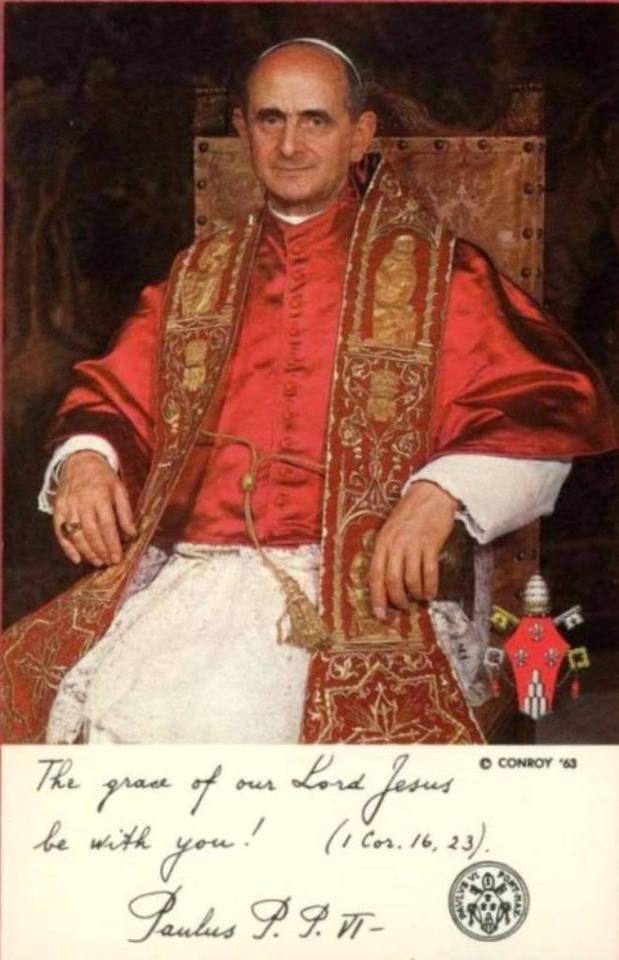
Saint of the Day – 26 September – Blessed Pope Paul VI Bishop of Rome, Marian devotee, Pro Life Advocate, Evangelist, Reformer, Canon Lawyer, Promoter of Workers’ rights (born Giovanni Battista Enrico Antonio Maria Montini (26 September 1897 – 6 August 1978) Patronages – Archdiocese of Milan, Paul VI Pontifical Institute, Second Vatican Council, Diocese of Brescia, Concesio, Magenta, Paderno Dugnano.
Born near Brescia in northern Italy, Giovanni Battista Montini was the second of three sons. His father, Giorgio, was a lawyer, editor and eventually a member of the Italian Chamber of Deputies. His mother, Giuditta, was very involved in Catholic Action.
After ordination in 1920, Giovanni did graduate studies in literature, philosophy, and canon law in Rome before he joined the Vatican Secretariat of State in 1924, where he worked for 30 years. He was also chaplain to the Federation of Italian Catholic University Students, where he met and became a very good friend of Aldo Moro, who eventually became prime minister. Moro was kidnapped by the Red Brigade in March 1978 and murdered two months later. A devastated Pope Paul VI presided at his funeral.
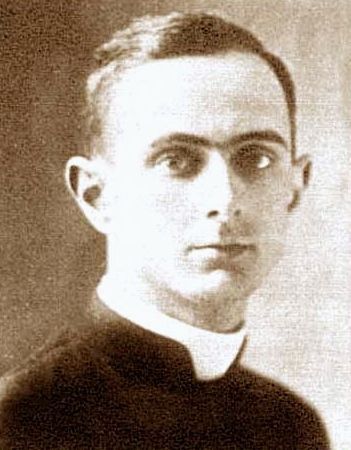
In 1954, Fr Montini was named archbishop of Milan, where he sought to win disaffected workers back to the Catholic Church. He called himself the “archbishop of the workers” and visited factories regularly while overseeing the rebuilding of a local Church tremendously disrupted by World War II.
In 1958, Montini was the first of 23 cardinals named by Pope John XXIII, two months after the latter’s election as pope. Cardinal Montini helped in preparing Vatican II and participated enthusiastically in its first sessions. When he was elected pope in June 1963, he immediately decided to continue that Council, which had another three sessions before its conclusion on December 8, 1965. The day before Vatican II concluded, Paul VI and Patriarch Athenagoras revoked the excommunications that their predecessors had made in 1054. The pope worked very hard to ensure that bishops would approve the Council’s 16 documents by overwhelming majorities.
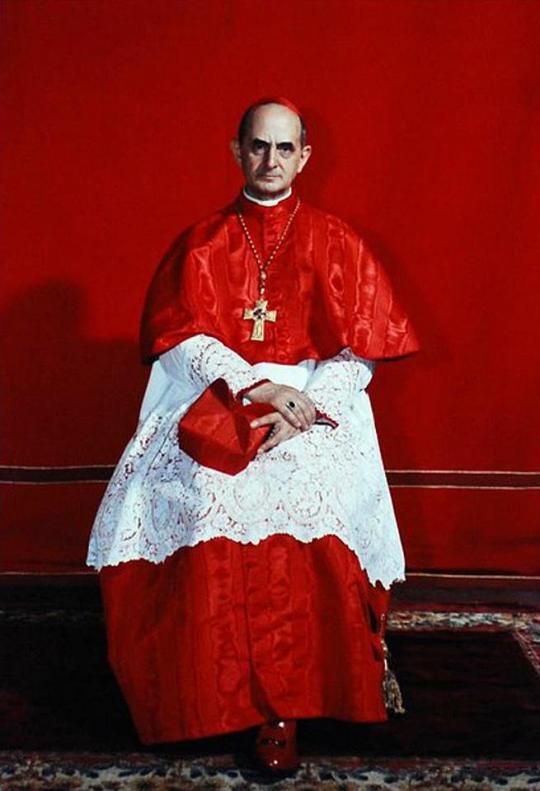
Paul VI had stunned the world by visiting the Holy Land in January 1964 and meeting Athenagoras, the Ecumenical Patriarch of Constantinople in person. The pope made eight more international trips, including one in 1965, to visit New York City and speak on behalf of peace before the United Nations General Assembly. He also visited India, Columbia, Uganda and seven Asian countries during a 10-day tour in 1970.
Also in 1965, he instituted the World Synod of Bishops and the next year decreed that bishops must offer their resignations on reaching age 75. In 1970, he decided that cardinals over 80 would no longer vote in papal conclaves or head the Holy See’s major offices. He had increased the number of cardinals significantly, giving many countries their first cardinal. Eventually establishing diplomatic relations between the Holy See and 40 countries, he also instituted a permanent observer mission at the United Nations in 1964. Paul VI wrote seven encyclicals; his last one in 1968 on human life–Humanae Vitae–prohibited artificial birth control.
Pope Paul VI died at Castel Gandolfo on August 6, 1978, and was buried in St. Peter’s Basilica. He was beatified on October 19, 2014.

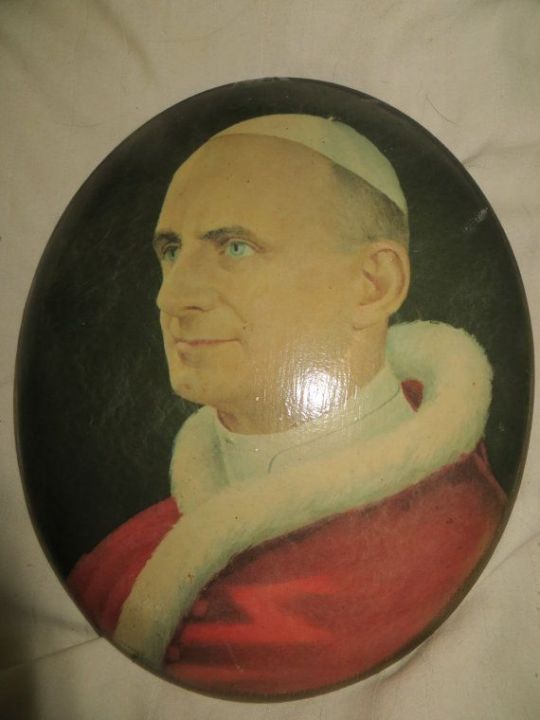
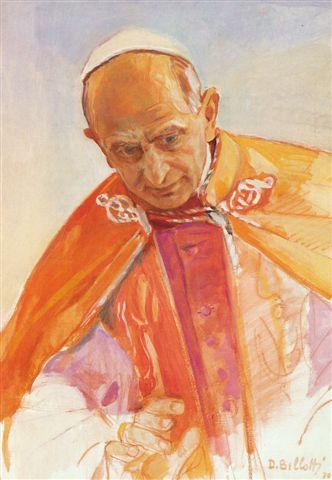
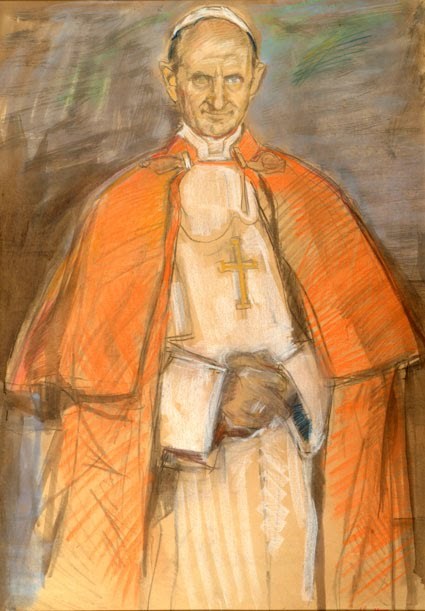
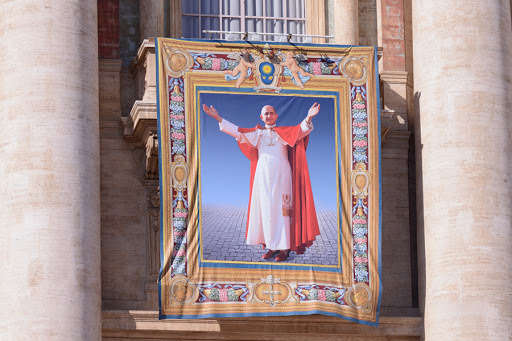
Pope Francis and Blessed Pope Paul VI – (The Image below is Pope Francis wearing his favourite stole. It is actually the stole that Blessed Pope Paul VI wore.)
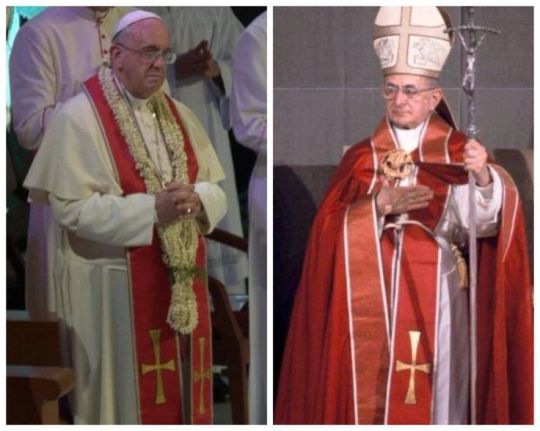
During his recent visit to Bozzolo, Italy, Pope Francis declared his desire to be able to canonise Paul VI.
According to a report today in the blog Il Sismographo, a miracle is being studied by the Congregation for Saints’ Causes, which if recognised, will pave the way for Blessed Pope Paul VI’s canonisation.
The miracle is related to the healing of a child on December 25, 2014, after a complicated pregnancy and a premature birth. The mother went to the Sanctuary of Graces in Brescia and prayed for Blessed Paul VI’s intercession for her tiny daughter’s survival.
“During his recent visit to Bozzolo, Pope Francis repeated his desire to canonise Paul VI,” noted Don Adriano Bianchi, director of the news service of Paul VI’s home diocese, Brescia, in a report on the subject in the journal Brescia oggi, on July 18.
The miracle approved for the beatification of Pope Paul VI (Giovanni Battista Montini) was also related to a difficult pregnancy. A woman was encouraged to abort her child because the baby was disabled. She refused the abortion and entrusted the baby to Paul VI’s intercession, because of his encyclical Humanae Vitae (1968). The infant survived, without any health concerns whatsoever. Paul VI was beatified on October 19, 2014, at the conclusion of the first Synod on the Family.
(via AnaStpaul – Breathing Catholic)
12 notes
·
View notes
Photo
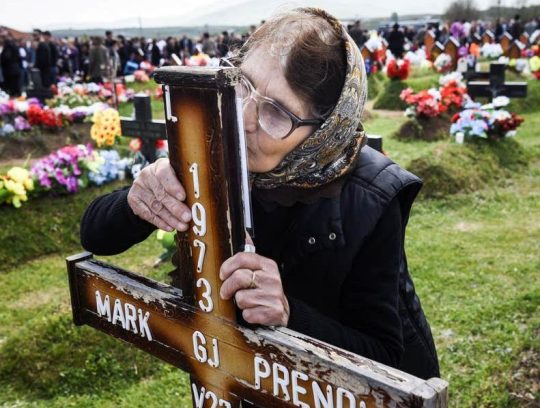
A Hungarian Servian
Yet this could not be termed a Government. The AVoiwodes were not inclined, nor would they have been able, to adjust the disputes which daily arose. During the greater part of the year, they were engaged in the field against the enemy. And, as the war could not be its own object, the peaceful fellowships in villages, Kneshines, and Xahis, on which every thing depended, had also the right to a share in the conduct of public affairs.
It were superfluous here to show that a regular and well-organised government was needed. This necessity, indeed, had been taken into consideration soon after the first meeting of the Skupschtina. When the deputies who went to St. Petersburg passed through Charkow, they found there one who might be termed a half-fellow countryman a Hungarian Servian, named Philippowitsch, a Doctor of Laws. Unaccustomed to the climate, he was always out of health, and wishing to return to the banks of the Danube, he accordingly joined the deputies.
He it was who first called the attention of the Servians to the necessity of a permanent court of jurisdiction and administration; and to that opinion he gained over Jacob Xenadowitsch in particular: though not without the assistance of Prota. Kara George also, who, whilst in the Austrian service, had acquired some inclination for law and order, was induced to declare in its favour. Accordingly, at a Skupschtina held at Borak, it was decided, that a legislative institution, such as that proposed, should be established.
Pursuant to this decision, in the year 1 SO’), a Civil Court of the Servian country, called Synod or Soiciet (Council or Senate) was held; first at Blagowjesehtenije, and then at Bogowadja, both of which were cloisters. After the conquest of Sme- dcrewo it was held there; but when Belgrade also had been taken, it was removed to that place, as being the capital of Servia.
The Senate consisted of twelve members, corresponding with the number of the districts; and tlie intention was, that each member should represent the district in which he might be elected, and should belong especially to it. Out of the public chest the Sowietnik received a small salary; which, however, was increased by supplies from the produce of the soil, so as to constitute a sufficient maintenance. These the district supplied in a very patriarchal mode : the Sowictnik received only wine, if his Nahia were a wine district; but, in other cases, each district sent its representative a couple of cows at Christmas, as provision for the winter. The house in which the Sowietnik resided was considered as the property of the district; every inhabitant of which had the right of lodging therein whenever he might come to the city. The members of the Senate were thus obliged to attend especially to the concerns of their respective districts: so far at least as their paramount duty of devoting themselves to the general affairs of the country would allow.
0 notes
Photo
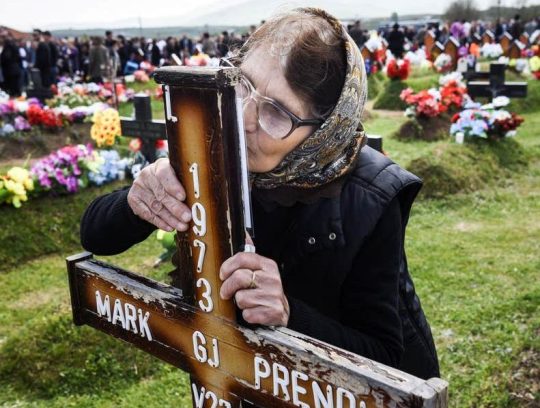
A Hungarian Servian
Yet this could not be termed a Government. The AVoiwodes were not inclined, nor would they have been able, to adjust the disputes which daily arose. During the greater part of the year, they were engaged in the field against the enemy. And, as the war could not be its own object, the peaceful fellowships in villages, Kneshines, and Xahis, on which every thing depended, had also the right to a share in the conduct of public affairs.
It were superfluous here to show that a regular and well-organised government was needed. This necessity, indeed, had been taken into consideration soon after the first meeting of the Skupschtina. When the deputies who went to St. Petersburg passed through Charkow, they found there one who might be termed a half-fellow countryman a Hungarian Servian, named Philippowitsch, a Doctor of Laws. Unaccustomed to the climate, he was always out of health, and wishing to return to the banks of the Danube, he accordingly joined the deputies.
He it was who first called the attention of the Servians to the necessity of a permanent court of jurisdiction and administration; and to that opinion he gained over Jacob Xenadowitsch in particular: though not without the assistance of Prota. Kara George also, who, whilst in the Austrian service, had acquired some inclination for law and order, was induced to declare in its favour. Accordingly, at a Skupschtina held at Borak, it was decided, that a legislative institution, such as that proposed, should be established.
Pursuant to this decision, in the year 1 SO’), a Civil Court of the Servian country, called Synod or Soiciet (Council or Senate) was held; first at Blagowjesehtenije, and then at Bogowadja, both of which were cloisters. After the conquest of Sme- dcrewo it was held there; but when Belgrade also had been taken, it was removed to that place, as being the capital of Servia.
The Senate consisted of twelve members, corresponding with the number of the districts; and tlie intention was, that each member should represent the district in which he might be elected, and should belong especially to it. Out of the public chest the Sowietnik received a small salary; which, however, was increased by supplies from the produce of the soil, so as to constitute a sufficient maintenance. These the district supplied in a very patriarchal mode : the Sowictnik received only wine, if his Nahia were a wine district; but, in other cases, each district sent its representative a couple of cows at Christmas, as provision for the winter. The house in which the Sowietnik resided was considered as the property of the district; every inhabitant of which had the right of lodging therein whenever he might come to the city. The members of the Senate were thus obliged to attend especially to the concerns of their respective districts: so far at least as their paramount duty of devoting themselves to the general affairs of the country would allow.
0 notes